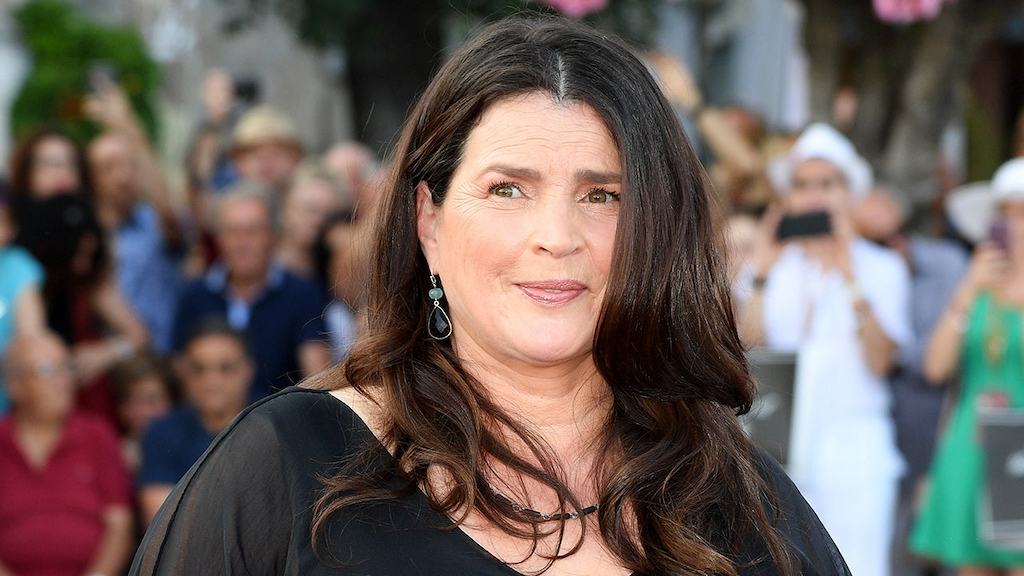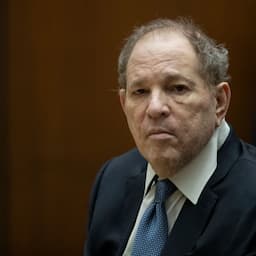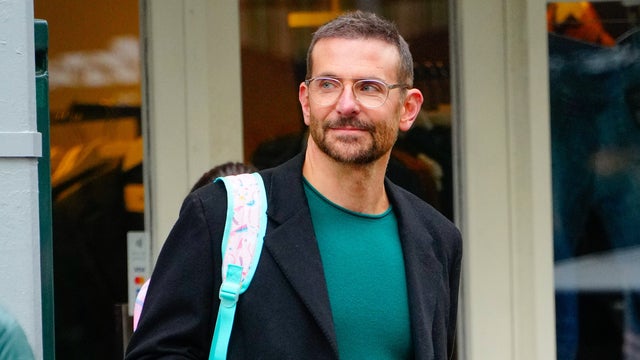The actress is suing the disgraced producer for battery and claiming that the companies enabled his alleged behavior.
Harvey Weinstein is facing new allegations of sexual battery. On Wednesday in New York, Julia Ormond filed a lawsuit claiming that the disgraced producer, who has been convicted of rape and is currently serving a 23-year prison sentence, sexually assaulted her in 1995.
The actress, best known for her work in Legends of the Fall and First Knight, is also suing Creative Artists Agency for negligence and breach of fiduciary duty, as well as The Walt Disney Company and Miramax for negligent supervision and retention, claiming that all three companies enabled Weinstein's alleged behavior.
Weinstein has yet to speak out about Ormond's lawsuit, though he's previously pleaded not guilty to other charges against him and is appealing his convictions in New York and Los Angeles. CAA, Disney and Miramax likewise haven't addressed Ormond's claims.
CAA, however, was previously accused by The New York Times of being part of "Weinstein's Complicity Machine," an allegation the company addressed in a 2017 statement which read, "We apologize to any person the agency let down for not meeting the high expectations we place on ourselves, as individuals and as a company. We unequivocally support those who have spoken out publicly."
In her lawsuit, which was obtained by ET, Ormond alleges that, after meeting Weinstein and developing a professional relationship with him in 1994, her agents at CAA negotiated a two-year, first-look production deal with Weinstein's Miramax, which included a company-provided New York City apartment.
The lawsuit claims that Ormond's CAA agents "well knew of Weinstein's propensity for sexually assaultive and exploitative behavior" when they secured the Miramax deal, additionally alleging that "they did not disclose these circumstances to Ormond or otherwise warn her about Weinstein's propensity for sexual assault."
In December 1995, the lawsuit alleges that Ormond and Weinstein had a scheduled business dinner, at which the producer "refused to discuss business matters and kept changing the subject."
"Finally, following dinner, Weinstein said he would only discuss the project back at the apartment Miramax had provided for Ormond as part of their first-look deal with her," the lawsuit claims. "Her defenses down because she had consumed several drinks, and wanting to finally get to what she thought was the purpose of their meeting, Ormond agreed to have Weinstein come back to her apartment. Soon after, Weinstein stripped naked and forced her to perform oral sex on him."
The lawsuit alleges that "the sexual assault on Ormond could have been prevented if Miramax or Disney had properly supervised Weinstein and not retained him while knowing that he was a danger to the women he encountered at work. Likewise, had CAA fulfilled its legal duties to Ormond to look out for her well-being, to not place her in danger, and to warn her about Weinstein’s predations, Ormond would not have been in a position to be victimized by Harvey Weinstein."
After the alleged incident, Ormond claims that her agents "suggested that if she reported Weinstein to the authorities, she would not be believed, and he would seriously damage her career."
Ormond alleges in her suit that her agents told her that, if she got a lawyer and pursued a settlement "she shouldn't expect to receive more than $100,000, which they apparently believed was the going rate for being sexually assaulted by Harvey Weinstein."
"Not long after Weinstein's assault on Ormond and her reporting of the assault to them, CAA lost interest in representing her, and her career suffered dramatically," the suit claims, adding that she eventually left the agency and had her contract terminated by Miramax.
"The damage to Ormond's career because of Weinstein's assault and the aftermath was catastrophic both personally and professionally," the lawsuit reads. "... CAA, Miramax, and Disney continued to handsomely profit from their close association with Harvey Weinstein for many years after Ormond was assaulted by him and then cast aside by Hollywood. But the damage to Ormond -- and so many other women Harvey Weinstein went on to rape, assault, and harass -- has yet to be fully understood."
In an interview with Variety, who was first to report the news of Ormond's lawsuit, the actress notes, "I am coming forward with my story now publicly because I feel as if we still need systemic change, and I feel that we need accountability from enablers, in order to get there. I feel that this is what happened with me."
"Obviously, Harvey Weinstein is in jail and is going to be in jail for a very long time. I personally don't believe that Harvey could have done this without enablers. And for me, that is the layer that you have to get down to, in terms of the root cause," she tells the outlet. "If you think about it, if there had been best practices and Harvey Weinstein had been called out at the start after his first sexual harassment or his first sexual assault, he could have learned different behaviors, and potentially all of the people that followed wouldn't have been harmed. But he wasn't. And there's a reason for that."
"I don't presume that this happened because people wanted it to happen. But it happened, nevertheless. And it wasn’t stopped," Ormond adds. "There should have been structures in place. There's no way that Harvey did this without people knowing. If people knew, they were either too afraid to step up, or they allowed the profit that they were making from their relationship with him to justify a cover-up."
In the U.S., help is available for survivors of sexual violence and their families. RAINN offers resources at 1-800-656-HOPE and on their website, www.rainn.org
RELATED CONTENT:




